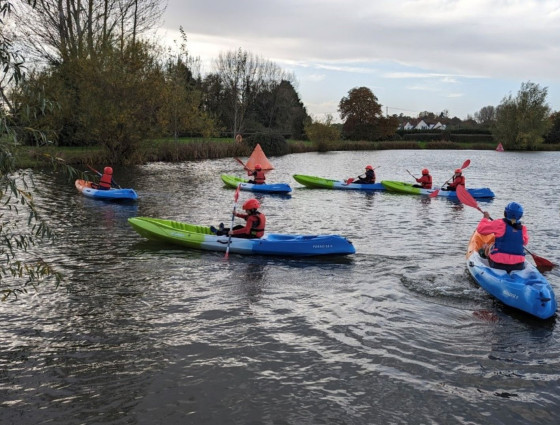At this time of year, with the end of the school year and the weather getting warmer, more young people are likely to head outdoors and find a cool spot by open water.
Public Health from Worcestershire County Council is sharing some of the risks and tips to stay safe connected with a quick dip, as well as what to do if they get into trouble.
According to the Royal Life Saving Society, teenagers and young adults are proportionately more likely to get into trouble while swimming in the outdoors.
While rivers, lakes and ponds might seem inviting on a hot day, it is important to think about the dangers, particularly for those who enter the water to cool off.
Open water can be much colder than it looks. It is more difficult to swim in cold water than in a temperature-controlled swimming pool, and cold water may cause problems with breathing and moving, known as 'Cold Water Shock'.
Councillor Satinder Bell, cabinet member for health and wellbeing, is asking young people to take note of the risks and to make safe choices.
Councillor Bell said: “As the weather heats up, we understand that young people will want to cool off in local ponds, rivers, or brooks, but it’s vital to be aware of the dangers open water can present, even on the hottest days.
“We want everyone to enjoy the lovely weather safely and to take care while they are near or in open water. If you do get into trouble, follow the tips from the Royal Life Saving Society.”
Tips for staying safe near open water include:
- Think before you enter – open water might seem refreshing, but ‘Cold Water Shock’, strong currents and hidden hazards beneath the surface can all be life-threatening.
- The water is often colder than it looks, making it difficult to move or breathe (Cold Water Shock)
- If you fall into water unexpectedly, remember the RNLI’s float to live advice:
- Fight the instinct to thrash about
- Lean back, extend your arms and legs
- Move gently if needed to help you float
- Float until you can control your breathing
- Only then call for help, swim to safety, or continue floating until help arrives
For more information and safety guidance, visit the Royal Life Saving Society webpage.
The Public Health Team provides advice and guidance to help people make informed choices about how to stay physically and mentally well.

 Facebook
Facebook X
X Email
Email WhatsApp
WhatsApp Messenger
Messenger